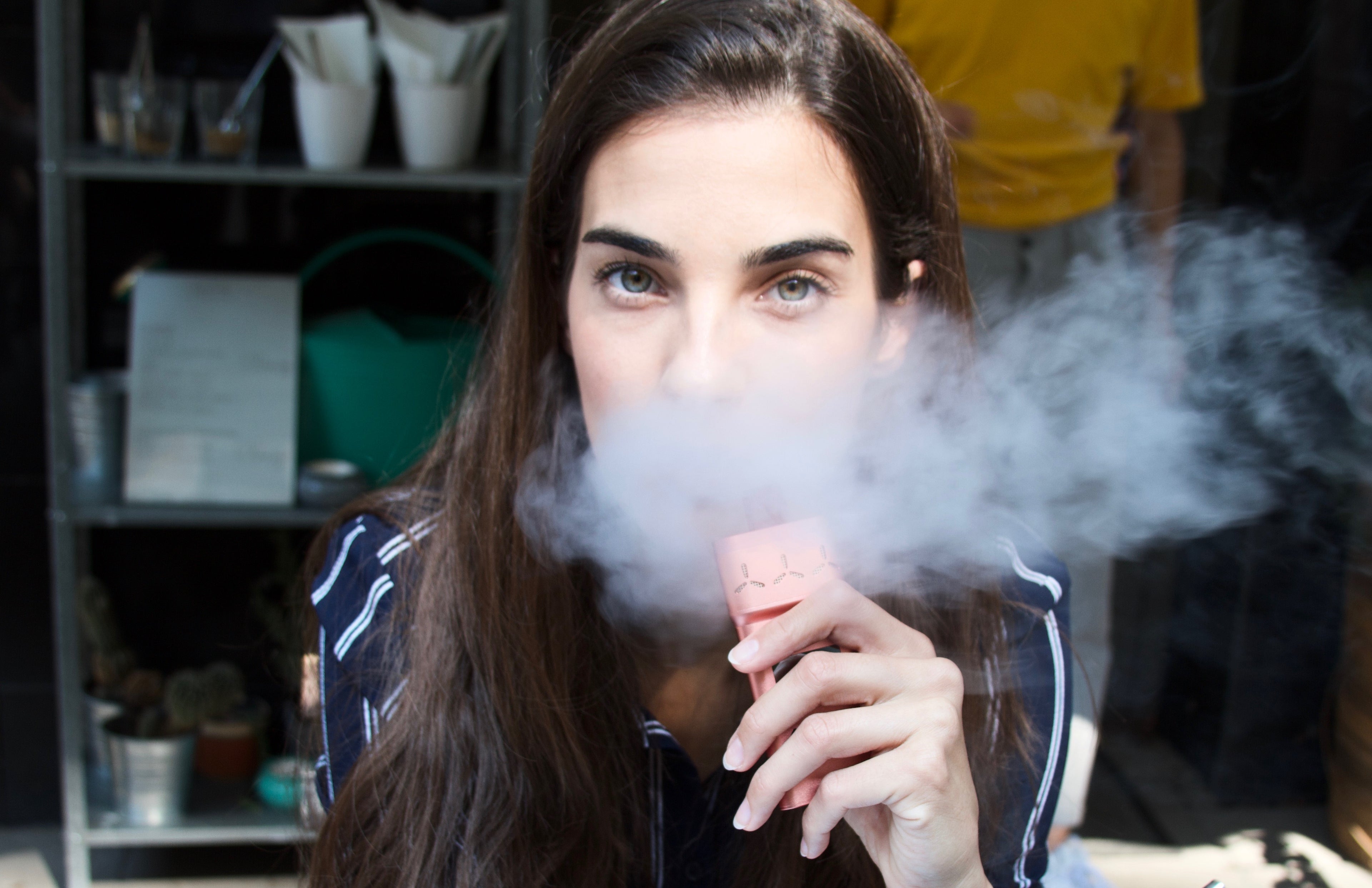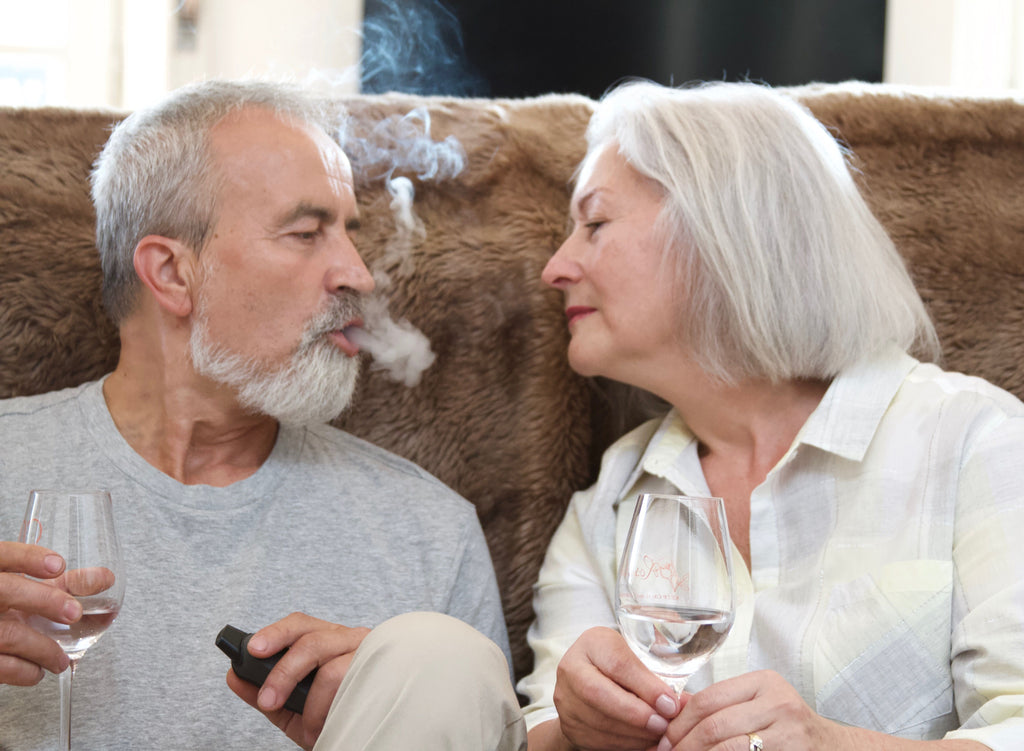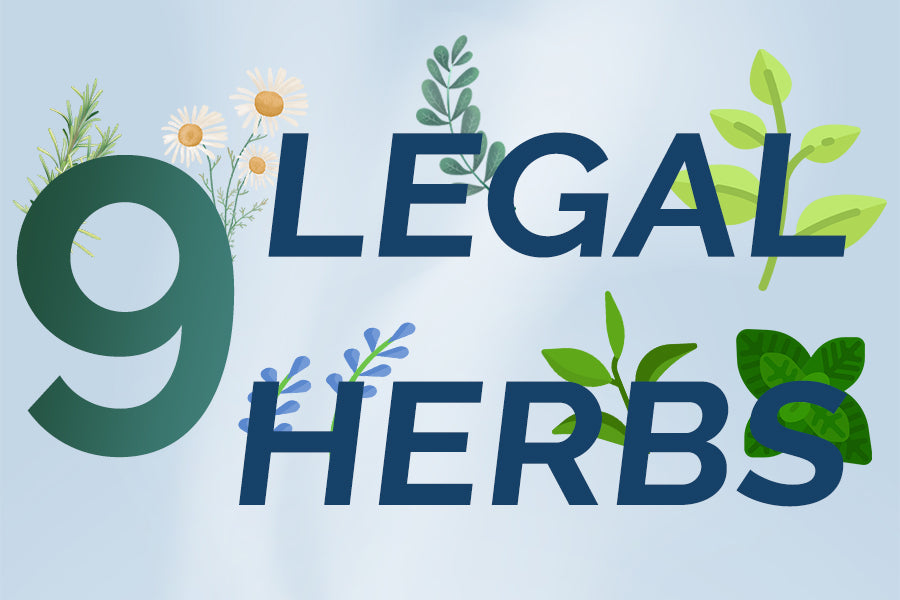Loose Leaf withdrawal: What you need to know

For years, people who have supported the legalization of pot have adamantly insisted that loose leaf does not cause symptoms of physical withdrawal, should a person find themselves trying to wane off of it. This was not embedded in ignorance or a lack of knowledge but instead due to the lack of research and medical advancements along with some half truths.
The research was tied up due to the lack of federal clearances to conduct proper research on the properties of the substance along with its effects.
With slowly relaxed norms not only in the United States but also across the world, there have been studies emerging about withdrawal symptoms of loose leaf with respect to physical effects, something we didn’t know previously.
While this is extremely rare and only occurs after abruptly stopping long term, heavy use of dry herb, this sets into motion an interesting situation that could have a net negative outcome.
There’s no way of knowing whether that’ll be the case, however, we can elaborate on the symptoms and possible outcomes and scenarios!
Is loose leaf as addictive as other substances?
(i.e tobacco, alcohol, hard drugs etc)
While public perception of loose leaf is changing quickly, there’s still a chunk of people who feel cannabis is as addictive as meth or heroin, which we know through scientific evidence to be untrue.
Now there are no two ways about it: Marijuana can be addictive and it does have nasty withdrawal symptoms, but they’re 1) not nearly as bad as hard drugs, like not even close and 2) it happens to 3-4% of people who are heavily dependent on loose leaf.

Most studies seem to indicate that cannabis is the least addictive substance when compared to tobacco, cocaine and alcohol
"Nicotine is nearly 8 times more addictive than pot, alcohol and cocaine around 2-3 times more. So it’s safe to say that loose leaf isn’t too addictive, but it can be. In fact, it’s easily one of the least addictive substances one can find."
source:ncbi.nlm.nih.gov
Cannabis Withdrawal Syndrome and how psychology plays into it
The American Psychiatric Association in the DSM (Diagnostic and Statistical Manual) for psychologists mentions withdrawal symptoms that people dependent on dry herb face when trying to quit loose leaf as Cannabis Withdrawal Syndrome or CWS. It’s important to note that these symptoms manifest only after consistent and long term dependency on pot, which is obviously not good.
Anyway, the DSM suggests that pot withdrawal has six symptoms:
- Irritability
- Nervousness/Anxiety
- Sleep Difficulty
- Decreased Appetite or Weight Loss
- Depressed Mood
- One of the following physical symptoms such as abdominal pain, shakiness/tremors, sweating, fever, chills, or headache.

Feelings of depression, anxiety, irritability and lack of appetite are common when trying to quit pot, along with headaches, chills, sweating and sleeplessness, which are less common
If you have more than 3 of the given symptoms, then it’s likely that you have CWS and the recommended treatment would be to go to a detoxification clinic followed by psychiatric and psychological help.
However, the DSM is not a perfect manual or benchmark for several different illnesses, as it has often been said that in the process of streamlining one’s understanding of illnesses, the manual tends to stereotype and inflate certain symptoms, which in term tends to become misleading for psychologists and psychiatrists alike, who use the DSM on a regular basis as a reference to treat and diagnose their patients.
This led to more research into whether or not the withdrawal symptoms mentioned here have any merit, and from the several papers studied by us, it does seem to be the case, especially when it comes to difficulty sleeping and shifts in mood.
And while not a withdrawal symptom, cravings were on the highest reported problems in dealing with quitting loose leaf in every study we encountered.
Another area where people struggle in the sleep department is that loose leaf affects how you dream very significantly.
We’ll get into this in another article perhaps, as this is an in-depth topic, but the gist of it is that people don’t dream when falling asleep after smoking up, but after an abrupt stop in consumption of loose leaf, the dreams return and many have stated they’re very, very vivid. Best of luck if it’s a wet dream!
 Pot has a huge effect on sleep, with lack of dreams being very common under sustained use, which can be a good or bad thing
Pot has a huge effect on sleep, with lack of dreams being very common under sustained use, which can be a good or bad thing
Anyway, an important distinction of loose leaf is that despite all the information that suggests that it’s an addictive substance that can have acute withdrawal symptoms in acute cases, most of the science suggests that loose leaf is easily one of the least addictive substances one can find.
Tobacco, heroin, cocaine, meth all rank much higher than loose leaf does, and it’s practically impossible for a person to get addicted to dry herb after the age of 25, which is loosely around the time the brain “stops” developing.
By comparison, cocaine tapers off in the late 40s - early 50s, tobacco is till the 60s. The fact of the matter is, it’s not very often that you’ll find a person who’s addicted to pot and is facing debilitating withdrawal symptoms, only 9% of all potheads get hooked and get dependent on it and a lesser percentage of them have withdrawal symptoms when trying to quit.
However, we must look into the 9% and see what symptoms they have and what are some of the more efficient treatment options: cannabis is a notoriously difficult substance to understand in terms of psychological and physiological dependence because of how rare it is to get hooked and how rare it is for withdrawal symptoms to develop, particularly physical symptoms of addiction and withdrawal. We’re going to try and paint a simple picture based off of the science and literature available, which will hopefully take care of some myths and stereotypes of loose leaf.
Physical and Psychological symptoms of withdrawal
Within the 9% of people who have symptoms of withdrawal, around 50% of them have mild or practically non-existent symptoms that are mostly psychological in nature (cravings, restlessness and irritability, for example). These are common and usually lapse within a short time frame and don’t pose any serious issues to someone who’s attempting to recover from long term addiction/dependency of loose leaf. The other half, however, is where the main symptoms of withdrawal manifest.
For most people who have psychological symptoms of withdrawal, most patients have reported heightened feelings of restlessness, psychological craving and an increase in the symptoms of health issues that were being treated by loose leaf. So things like sleep disorders, depression, anxiety, focus issues and PTSD all had their symptoms come back.
While treating these issues with cannabis is not a bad thing at all, moderation is very important here because addiction to it can make a recovery process incredibly hard, especially for people with sleep issues and PTSD (and even muscle related health issues where loose leaf helps with pain relief).
 Stress, anxiety and irritability, along with cravings are some of the milder and common withdrawal symptoms that tend to go away within a week
Stress, anxiety and irritability, along with cravings are some of the milder and common withdrawal symptoms that tend to go away within a week
In some of the case studies we read, people who had been using loose leaf for several years saw extremely disturbed sleep cycles and a chronic lack of sleep.
Appetite would go up and down and a similar swing was seen in chills/feeling extremely hot and uneasy, abdomen and stomach pains, severe headaches and bouts of dizziness.
source:ncbi.nlm.nih.gov
What’s more interesting is that some journals also indicated that this percentage of people with withdrawal symptoms could be higher, up to 78%.
This is bad news for people who use loose leaf for their sleep issues or for their anxiety issues as not only will their insomnia/anxiety return, there’s a chance that if the withdrawal lasts for a while and is acute, these symptoms might deteriorate over time and negatively impact a person’s mental health in the long run.
There have been cases of people having uncomfortable and very vivid dreams. And for people who use pot as a creative fuel or to help them focus, this pretty much puts their productivity in tatters too.
 Dizziness, migraines, sleeplessness, stomach pains, chills and hot/cold body temperatures are some of the more severe and long term withdrawal symptoms that requires care and treatment
Dizziness, migraines, sleeplessness, stomach pains, chills and hot/cold body temperatures are some of the more severe and long term withdrawal symptoms that requires care and treatment
But is it really a downside if you’re so heavily dependent on something?
Loose leaf, or any substance that is beneficial, is supposed to facilitate your recovery or your plan of “beating” your obstacles and your deficiencies.
When made a crutch, the side effects are bound to be debilitating.
What about vaporents?
What about you guys who don’t smoke loose leaf? There’s no specific research that has been conducted into the mode of delivery and its impact on withdrawal symptoms, but it’s safe to say that any difference, if any, will be minimal, as most studies look at long term users, who’s patterns of use will most likely converge at the same point. What does make a difference is the age at which a person starts using loose leaf and apparently race, too, with black teenagers reporting lower rates of CWS.
Apparently a lot of it has to do with previous tobacco use as well, but overall too, when looking at people who smoke up regularly, black teens aren’t going to get hooked to pot as easily as others, which is rather surprising and there’s little clarity on whether that’s a genetic thing or if it’s influenced by culture. Anyway, moving on.
 There have been no studies done about CWS on vaporents, however, the mode of delivery here makes little difference given the psychological and physiological nature of addiction
There have been no studies done about CWS on vaporents, however, the mode of delivery here makes little difference given the psychological and physiological nature of addiction
The concentration of THC is likely to play a role as well, as that is the primary psychoactive compound of loose leaf. What’s more interesting to note is that cigarettes, that have been proven again and again to be more addictive than dry herb by a mile and then some, does not seem to have a protocol/naming system (like CWS) for the withdrawal symptoms people face when trying to quit tobacco. Big tobacco does have big reach, who woulda thought?
Conclusion
In this mysterious journey of researching this piece, we’ve come to realize that some of the myths propagated by people who love weed and people who hate weed can be dangerous, but also that they can be dispelled quickly in the time and age of information that’s available in a few clicks, much like the pot in your vape chamber, dispelling your symptoms of insomnia, anxiety and hopefully all the other ills this pandemic has brought into your lives.
Stay safe, stay home, folks.


